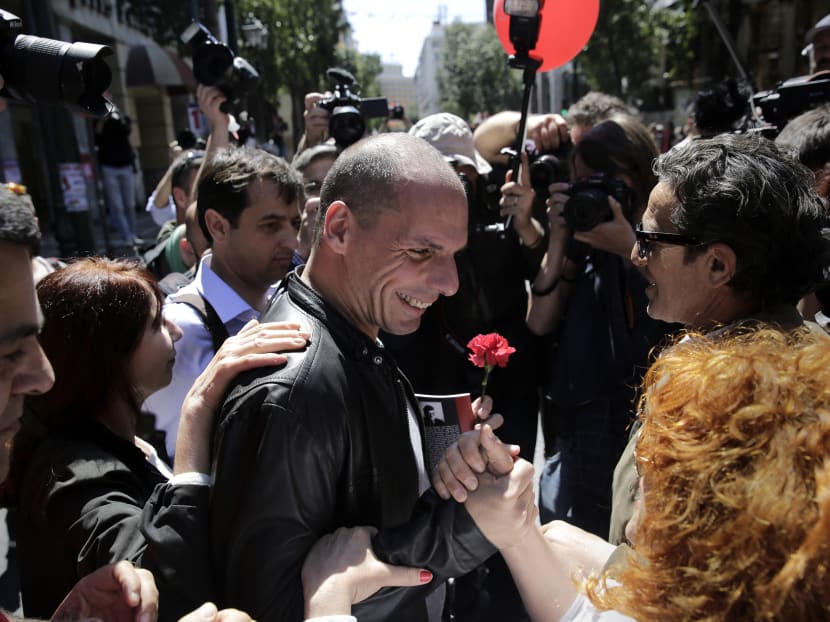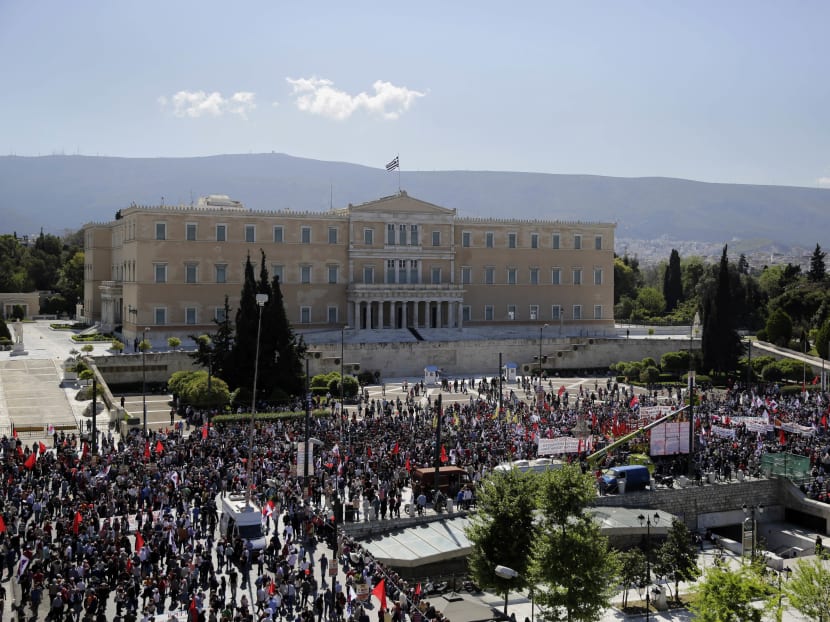Greece: Progress in bailout talks, seeks swift payout
ATHENS (GREECE) — Weekend negotiations between Greece and rescue lenders have made progress, officials on both sides said today (May 4) even though Athens stressed it needed a swift release of delayed bailout money to keep up with debt payments.


ATHENS (GREECE) — Weekend negotiations between Greece and rescue lenders have made progress, officials on both sides said today (May 4) even though Athens stressed it needed a swift release of delayed bailout money to keep up with debt payments.
Greece's new government is struggling to deliver economic reforms and budget measures that are deemed acceptable by creditors in order to secure the remaining money in its bailout fund worth 7.2 billion euros (S$10.7 billion).
Without the money, Greece faces the possibility of going bankrupt in the coming weeks, putting up controls on the free flow of capital and an exit from the euro. Its next big repayment is a 750 million-euro payment due to the International Monetary Fund (IMF) on May 12.
"At this moment, the government is discussing, it is negotiating, and there has been significant progress at these negotiations," Greek government spokesman Gabriel Sakellaridis said. "The government is awaiting and expecting the release of funds, and for this liquidity to be made available not at the end of May, but as soon as possible."
Meanwhile, a eurozone official said there was "convergence on some issues" but stressed that more work was needed on others.
The official did not elaborate where advances have been made but Athens has previously noted progress has been made on tax reform, privatisation, and changes to the country's bureaucracy.
"They are asking us not to touch any of those things that during the last five years destroyed the lives of Greek citizens. Is that possible?" Greek Labour Minister Panos Skourletis told private Mega television.
The IMF, he said, was pressing Athens to phase out state support for several pension funds, maintain a low minimum wage, and slash various pension payments.
"The choice is for the country to repay its obligations and to reach an agreement. That is our choice, our choice hasn't changed," he said.
"If that is not achievable, it will not be this side that has the largest portion of responsibility." AP






